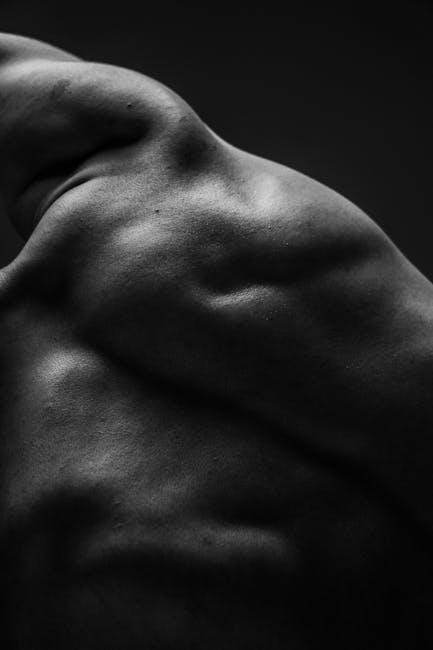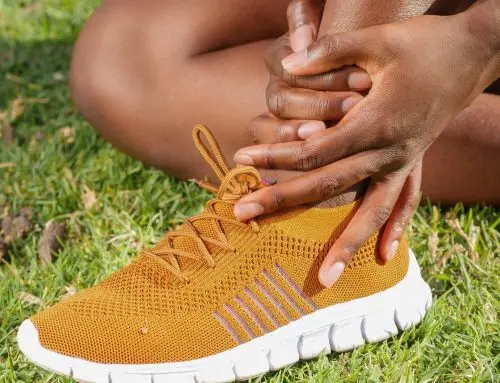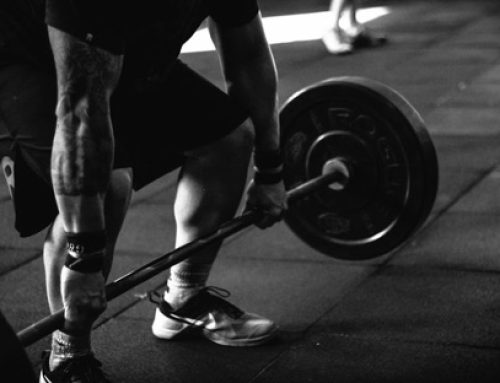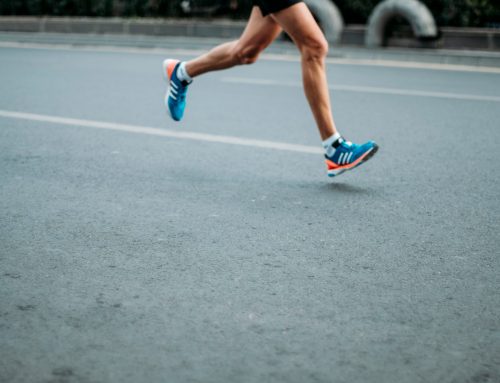Have you ever woken up feeling like you just went ten rounds with a heavyweight boxer, even though all you did was crush it at the gym the day before? Yes, that intense burning sensation that makes it impossible to sit down, stand up, or even breathe without wincing – that my friends, is the sweet (or not so sweet) embrace of muscle soreness. But fear not, for behind this agonizing pain lies a fascinating tale of science, sweat, and lactic acid buildup. So, grab your ice packs and foam rollers, because we’re about to dive into the wild world of muscle soreness and learn how to conquer it like a true warrior.
Contents
Common Causes of Muscle Soreness
Ever woken up feeling like you went ten rounds with a heavyweight boxer? Yup, that’s the delightful sensation of muscle soreness. While it may make you walk like a penguin, there are a few common culprits responsible for this delightful post-workout experience.
One of the top offenders is none other than our good ol’ pal, **lactic acid**. This sneaky little molecule builds up in our muscles during intense exercise, causing that oh-so-lovely burning sensation. It’s like a tiny little torture device, reminding you of every squat and burpee you did the day before.
But wait, there’s more! **Muscle overuse** is another common cause of soreness. You know, when you decide to do a million bicep curls because you’re convinced you’re only one workout away from having arms like The Rock. Spoiler alert: you wake up the next day unable to lift a water bottle.
And let’s not forget everyone’s favorite culprit: **not prevention/” title=”The Impact of Stretching on Injury Prevention”>stretching**. Skipping your post-workout stretches is like asking for sore muscles to come knocking on your door. It’s like your body’s way of saying, “Oh, you thought you could skip stretching, huh? Guess what, now you can’t even lift your arms above your head.”

The Role of Lactic Acid in Muscle Fatigue
When it comes to muscle fatigue, lactic acid is often blamed for making us feel like we’ve just run a marathon after climbing a flight of stairs. But is this reputation fair?
Many people view lactic acid as the evil villain of the muscle fatigue world, but in reality, it’s more like the misunderstood sidekick. Lactic acid production is actually a natural byproduct of energy production in our muscles. It’s not out to sabotage our gains, it’s just doing its job.
So why does lactic acid get such a bad rap? Well, it turns out that lactic acid is just a scapegoat for a more complex process. It’s not the sole cause of muscle fatigue, but rather a contributor. In fact, lactic acid can actually be beneficial for our muscles in some ways.
Next time you feel the burn during a workout, remember that lactic acid is just trying to help. So maybe we should cut it some slack and appreciate its role in the grand scheme of muscle fatigue. After all, without lactic acid, we wouldn’t have that satisfying post-workout soreness that lets us know we’ve put in the effort.

Inflammation and Microscopic Muscle Damage
Here are a few things you should know about :
Don’t be alarmed if you wake up feeling sore
- It’s totally normal to experience some muscle soreness after a tough workout.
- This is your body’s way of telling you that you’ve put in some serious effort.
- But don’t worry, this temporary discomfort is all part of the fun of getting fit!
RICE is not just for eating
- Rest, Ice, Compression, and Elevation are your best friends when it comes to dealing with inflammation and muscle damage.
- Take a break, slap some ice on those achy muscles, wrap ’em up, and put your feet up. You deserve it!
Listen to your body
- If your muscles are screaming at you to take it easy, then listen up!
- Pushing through the pain might sound tough, but it’s actually a surefire way to make things worse.
- So give your body the TLC it deserves and you’ll be back in action in no time!

Understanding the Delayed Onset of Muscle Soreness (DOMS)
So you thought you had finally conquered that intense workout, but now you can barely walk up the stairs without wincing in pain. Ahh, the sweet, sweet feeling of DOMS - Delayed Onset of Muscle Soreness. But fear not, fellow gym warriors, for I am here to shed some light on this mysterious phenomenon!
It’s like your muscles are having a little temper tantrum after being pushed to their limits. DOMS usually kicks in 24 to 48 hours after a tough workout, leaving you feeling like you’ve been hit by a truck. But hey, no pain, no gain, right?
So what exactly causes DOMS? Well, research suggests that it’s a combination of microscopic damage to your muscle fibers, inflammation, and the buildup of waste products like lactic acid. In other words, your muscles are basically throwing a party and inviting all their pain-inducing friends. How rude!
But fear not, brave souls, for there are ways to ease the agony of DOMS. From a relaxing foam rolling session to a soothing Epsom salt bath, there are plenty of remedies to help you survive the aftermath of a killer workout. So embrace the pain, embrace the gains, and remember – no pain, no champagne! Cheers to DOMS!
recovery-and-prevention”>Effective Strategies for Recovery and Prevention
One great strategy for recovery and prevention is to prioritize self-care. Make sure you are getting enough rest, eating well, and taking time for relaxation. Remember, you can’t pour from an empty cup! So treat yourself like the precious porcelain teapot you are.
Another effective strategy is to stay active and exercise regularly. Not only does exercise release endorphins, but it also strengthens your body and immune system. Plus, who wouldn’t want to show off their new workout gear at the gym?
Don’t forget to surround yourself with positive people and seek support when needed. Whether it’s friends, family, or furry companions, having a strong support system can make a world of difference. And remember, a good hug can do wonders for the soul!
Lastly, don’t be afraid to seek professional help when necessary. Therapy, counseling, or coaching can provide you with valuable tools and insights to overcome challenges and prevent future setbacks. Remember, even Batman had Alfred to help him out!
hydration-for-muscle-health”>The Importance of Proper Nutrition and Hydration for Muscle Health
Picture this: you’re at the gym, lifting weights like there’s no tomorrow, grunting and groaning like a wild animal. You’re giving it your all, but are you fueling your muscles properly? Are you hydrating like a champ? Let’s break it down, folks.
When it comes to proper nutrition for muscle health, protein is your best friend. It’s like the building blocks for your muscles, helping repair and grow those bad boys after a hardcore workout. So load up on those chicken breasts, eggs, and protein shakes. Your muscles will thank you later.
Now, let’s talk about hydration. Water is the elixir of life, people. It keeps your muscles functioning properly, prevents cramps, and helps flush out toxins. So grab that water bottle and chug away. Your muscles will be singing your praises.
Remember, folks, proper nutrition and hydration are the keys to unlocking those gains. So eat your protein, drink your water, and watch those muscles grow bigger and stronger. You got this!
FAQs
Why do we experience muscle soreness after working out?
Well, you see, when you work out, you’re basically causing small micro-tears in your muscles. It’s like giving your muscles a tiny paper cut, but instead of bleeding, they just get really sore. Think of it as your muscles throwing a temper tantrum because you made them do something they didn’t want to do.
Does muscle soreness mean you had a good workout?
Absolutely! Muscle soreness is like a badge of honor for gym-goers. It’s your body’s way of telling you that you pushed yourself to the limit. If you’re not sore after a workout, did you even really work out?
How can I alleviate muscle soreness?
There are a few ways to soothe those achy muscles. You could try taking a nice, warm bath, getting a massage, or even just curling up on the couch with a pint of ice cream and binge-watching your favorite show. Hey, sometimes a little self-care is the best medicine.
Should I continue working out if I’m still sore?
It’s generally safe to continue working out if you’re a little sore, but listen to your body. If your muscles feel like they’re screaming at you to stop, maybe take a rest day and let them recover. Remember, it’s all about balance – both in the gym and in life.
—
In Conclusion: Say Goodbye to Soreness and Hello to Gainz!
Well, there you have it, folks! The mystery behind muscle soreness has been unraveled, and now you can combat it with confidence. So next time you’re hobbling around like a newborn giraffe after leg day, just remember that it’s all part of the process of becoming a lean, mean, muscle machine.
Now go forth and conquer those weights, knowing that you have the power to recover like a champ. And don’t forget to treat yourself to some well-deserved rest and recovery, because your muscles deserve it! Stay strong, stay sore (in a good way), and keep crushing those workouts like the muscle-bound superhero that you are. You got this!








Leave A Comment